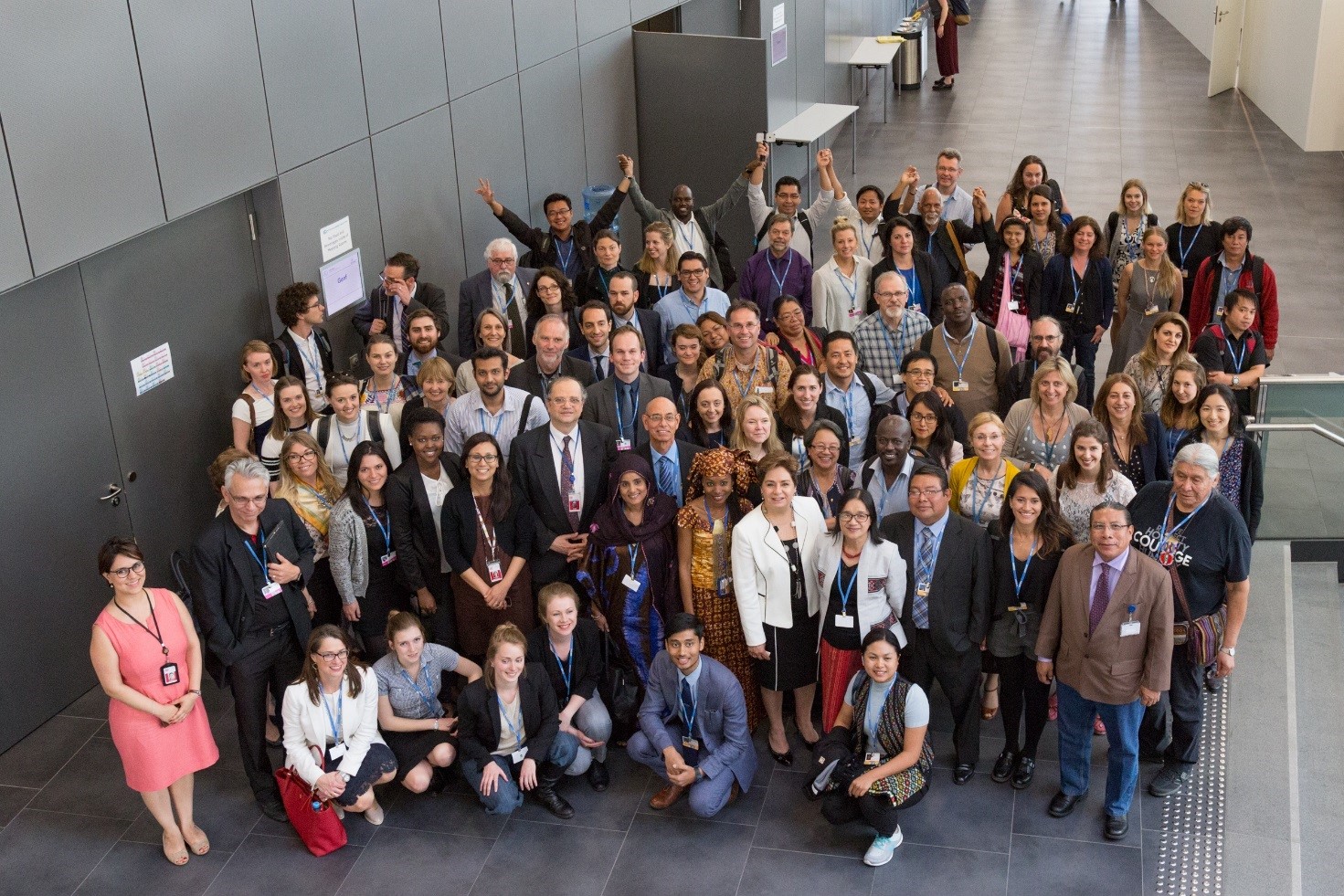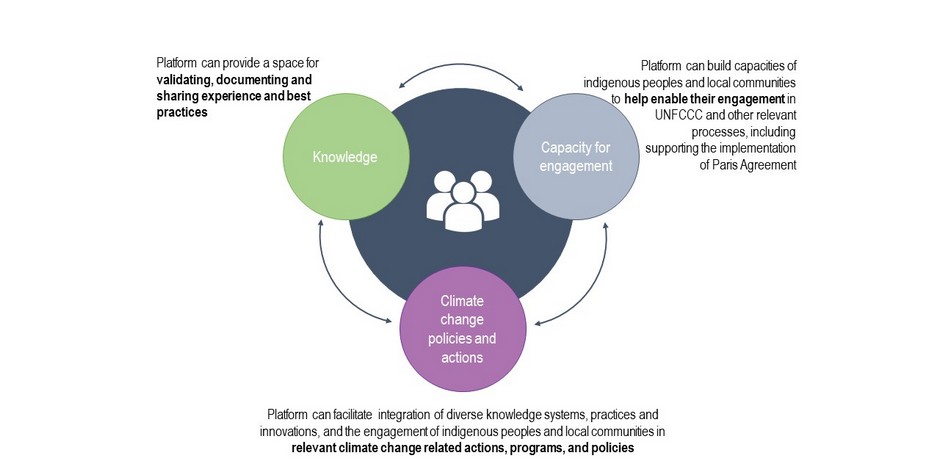One of the key decisions taken during the 21st Conference of Parties (COP 21) in Paris was the establishment of a platform that allows ‘the exchange of experiences and sharing of best practices on mitigation and adaptation’, between local communities, indigenous peoples, countries and all other relevant stakeholders. Such platform would mark a critical milestone in the global endeavor to strengthen knowledge, technologies, practices, and efforts of local communities and indigenous peoples in addressing climate change.
To operationalize this plan, an open multi-stakeholder dialogue was held as part of the 46th session of Subsidiary Body for Scientific and Technological Advice (SBSTA 46) on May 16-17, 2017. The event was well-attended by 96 participants comprising county delegates, representatives of indigenous people organizations, and expert non-governmental organizations from every region in the world, and co-moderated by Carlos Fuller (SBSTA Chair) and Grace Balawag (indigenous peoples organizations’ representative). The main outcome of this two-day session includes a set of proposals on the purpose, content, as well as structure of the platform.

Participants of the open multi-stakeholder dialogue on May 17, 2017, Bonn. Source: UNFCCC
“Local communities and indigenous peoples truly understand climate change, and are often at the frontlines of climate impacts and witness the devastating effects. We need your knowledge to build bridges between indigenous communities and other groups acting on climate change,” noted Patricia Espinosa, the Executive Secretary of the UNFCCC during the opening of the dialogue, which further attests to the importance of this undertaking.
The event included a panel discussion moderated by Stephen Leonard from the Center for International Forestry Research (CIFOR):
- Hindou Oumarou Ibrahim (IIPFCC) highlighted indigenous people’s already active participation through the work of numerous UN bodies.
- Douglas Nakashima (UNESCO) then introduced a 15-year “Local and Indigenous Knowledge Systems” programme, which brings together natural and social scientists to further integrate scientific and indigenous peoples’ knowledge.
- Jvoti Mathur-Filipp (UNDP) shared UNDP’s 25 years of experience in collaborating with indigenous peoples through the Global Environment Facility Small Grants Programme.
The dialogue acknowledged that the platform should have three main interlinked functions: (1) knowledge: the platform should provide a space for validating, documenting and sharing experience and best practices; (2) climate change policies and actions: the platform should facilitate the integration of indigenous and local knowledge systems as well as the engagement of indigenous peoples and local communities in relevant climate change related actions, programmes and policies; and (3) capacity for engagement: the platform should build the capacities of indigenous peoples and local communities to effectively engage in and support the UNFCCC process.

The multi-stakeholder dialogue had contributed to a better understanding of the opportunities and challenges in the operationalization of the local communities and indigenous peoples’ platform. Participants agreed that such platform should serve the needs of the indigenous peoples and local communities, while facilitating knowledge and experience exchange with governments and other groups working on climate change.
A report that summarizes the different proposals for operationalization of this platform will be shared during the next SBSTA meeting on November 6-17, 2017.